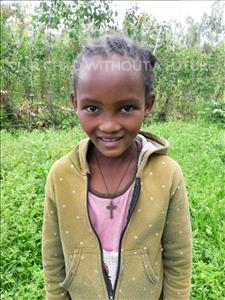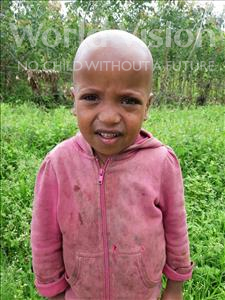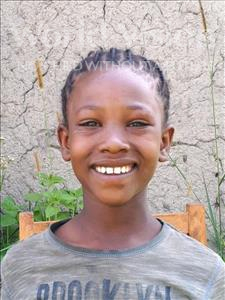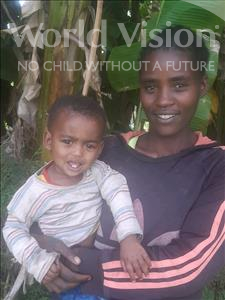Geography and people
An East African country, Ethiopia borders Eritrea to the north, Djibouti and Somalia to the east, Kenya to the south and Sudan to the west. Ethiopia is the second most populous country in Africa and is home to over 90 million people speaking more than 80 languages.
Over 80 percent of Ethiopians work in agriculture. Major crops are coffee, teff, sorghum, pulses, oil seeds, potatoes and cotton. Natural resources consist of small reserves of gold, platinum, copper, natural gas and hydropower.
Livestock farming is significant to Ethiopia and extremely important for household wealth and the country’s overall income.
Most Ethiopians live in rural areas, many with extended families in a group of thatched huts.

Population
Life expectancy
Literacy rate
Access to safe water
Average annual income
School enrollment
Fast facts
Recent droughts and declining natural resources have made poverty a common issue, with more than 30 percent of Ethiopians living below the poverty line. In 2012, Ethiopia ranked 173 out of 186 countries on the Human Development Index.
Ethiopia has the 14th largest number of people (almost one million) of any country in the world living with HIV and AIDS. There are 900,000 children who have been orphaned because of an AIDS-related death of one or both parents.
Please sponsor a child in Ethiopia today.
Our focus in Ethiopia
World Vision is committed to partnering with the people of Ethiopia to transform their lives today and to help deliver sustainable solutions for the future of their children, families and communities. Our child sponsorship programme plays a vital role in this partnership, with donors from the United Kingdom sponsoring over 10,819 girls and boys (as of April 2014) across six community projects. In addition to sponsorship, World Vision operates other programmes that benefit communities in Ethiopia.
Highlights of our work include:
Increasing food security, access to health facilities, education and clean drinking water and improved child wellbeing
Improving access to healthcare by strengthening health services
Providing support for children to enroll and stay in school
Combatting the spread of HIV and AIDS by partnering with the church, the government and other organisations.
Our Achievements in Ethiopia
World Vision’s first relief project in Ethiopia began in 1971, helping refugees from the civil war in Sudan. Since then, some of World Vision’s major accomplishments include:
Water
Drilling wells for villagers and their livestock and providing food aid for those affected by a severe drought during the 1970s.
Food security
Implementing famine relief operations during the 1980s, saving thousands of lives and starting recovery programmes in the 1980s and 1990s.
Education
Increasing access to education by building schools, training teachers, and providing school supplies in 6 communities since the early 2000s.
Pray for Ethiopia
World Vision is committed to partnering with the people of Ethiopia to improve their lives today and to help deliver sustainable solutions for the future of their children, families and communities.
Please pray for our work with the poorest children in Ethiopia »

Sponsor a child in Ethiopia
Latest news
-
World Vision joins DEC appeal to raise urgent funds for Indonesia tsunami survivors
Thursday 04, Oct, 2018 -
Indonesia earthquake and tsunami: World Vision UK launches appeal
Wednesday 03, Oct, 2018
Our blog
- Wednesday 10, Oct, 2018
Indonesia tsunami: Aid worker's diary of desperation and hope
Friday 05, Oct, 2018



